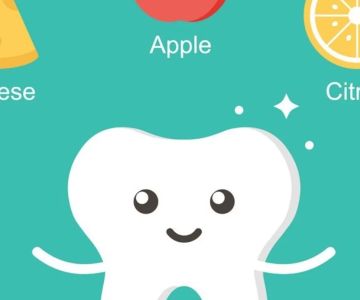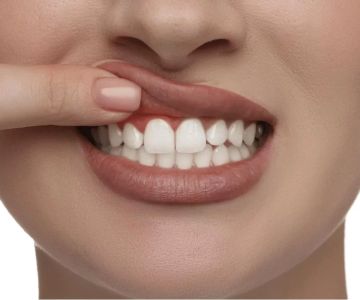What is an Oral Diet?
An oral diet is a nutritional plan that involves eating food through the mouth rather than through alternative means such as feeding tubes or intravenous nutrition. It is the most natural and common way of obtaining the necessary nutrients to support overall health. While oral diets can vary greatly based on individual needs, preferences, and medical conditions, they are generally designed to provide a balanced intake of carbohydrates, proteins, fats, vitamins, and minerals. The goal of an oral diet is to maintain health and provide energy for daily functions, while also addressing any specific dietary restrictions or medical needs.
1. Why is an Oral Diet Important?
Maintaining a healthy oral diet is essential for overall well-being. For most people, eating a variety of foods through the mouth helps to provide the body with necessary nutrients and energy. A balanced oral diet plays a crucial role in preventing malnutrition, maintaining a healthy weight, and supporting the immune system. It can also contribute to improved digestion and better absorption of nutrients, which are vital for overall health. Additionally, a proper oral diet is often prescribed to individuals recovering from surgery or illness, where proper nutrition helps speed up recovery.
2. Common Components of an Oral Diet
In an oral diet, the food choices are based on general nutritional principles. This often includes:
- Fruits and Vegetables: These are key for vitamins, fiber, and antioxidants that support immune function.
- Proteins: Sources such as lean meats, fish, eggs, and plant-based proteins (like beans and tofu) are essential for muscle repair and growth.
- Carbohydrates: Foods like whole grains, potatoes, and legumes provide energy for daily activities.
- Dairy: Products like milk, cheese, and yogurt offer calcium and other important nutrients for bone health.
- Healthy Fats: Incorporating healthy fats from sources like olive oil, avocados, and nuts helps maintain brain function and energy.
Depending on your health condition, the specific balance of these food groups can vary, but the general idea is to provide well-rounded nutrition that supports all aspects of your health.
3. Types of Oral Diets
Oral diets can be customized for specific health conditions or preferences. Some common types of oral diets include:
- Balanced Diet: This diet focuses on providing a proper balance of carbohydrates, proteins, fats, vitamins, and minerals.
- Low-Sodium Diet: Typically used for individuals with high blood pressure or heart conditions, this diet reduces salt intake to prevent fluid retention.
- Diabetic Diet: This focuses on controlling carbohydrate intake and includes foods that help maintain healthy blood sugar levels.
- Gluten-Free Diet: People with celiac disease or gluten intolerance may follow a gluten-free oral diet to avoid digestive discomfort.
- High-Protein Diet: Often prescribed for people recovering from surgery, trauma, or illness, this diet helps with tissue repair and muscle mass preservation.
Each type of oral diet is carefully crafted to meet the individual’s specific health needs, which highlights the importance of consulting with healthcare providers to create the right plan for you.
4. How an Oral Diet Supports Health Recovery
An oral diet is often a key part of the recovery process, especially after an illness, surgery, or injury. For example, after undergoing surgery, the body needs adequate nutrition to heal properly. An oral diet that provides the right balance of protein, vitamins, and minerals helps to build new tissue and repair damaged cells. Similarly, patients with chronic illnesses such as cancer may be prescribed a specialized oral diet to help combat malnutrition and maintain energy levels during treatment.
5. Common Mistakes to Avoid with an Oral Diet
While an oral diet can be beneficial for most people, there are some common mistakes that can hinder its effectiveness:
- Overconsumption of Processed Foods: Many people rely on highly processed foods, which can be high in unhealthy fats, sugars, and sodium. These should be consumed in moderation.
- Skipping Meals: Skipping meals or not getting enough nutrients in one’s diet can lead to energy deficiencies and disrupt bodily functions.
- Lack of Variety: Focusing on only a few food items can limit nutrient intake. It’s important to include a variety of food groups in the diet for a balanced nutrient profile.
Being mindful of these common pitfalls can help ensure that an oral diet is as effective as possible in supporting overall health and well-being.
6. Customizing Your Oral Diet for Your Needs
Whether you are dealing with a specific health condition, have dietary restrictions, or simply want to maintain a balanced diet, customizing your oral diet is essential. Working with a dietitian or nutritionist can help you create a plan that suits your lifestyle, preferences, and health goals. A tailored oral diet can provide optimal support for digestion, weight management, and overall health, ensuring that your body receives the nutrients it needs.
If you’re unsure where to begin, there are also many online resources and apps that offer personalized meal plans, or you can visit your healthcare provider to get professional advice on creating a healthy oral diet that meets your needs.







 Greencastle Dental4.0 (653 review)
Greencastle Dental4.0 (653 review) Smile L.A. Downtown Modern Dentistry4.0 (484 review)
Smile L.A. Downtown Modern Dentistry4.0 (484 review) Wu Orthodontics | South Pasadena4.0 (48 review)
Wu Orthodontics | South Pasadena4.0 (48 review) Growing Smiles of Voorhees4.0 (2464 review)
Growing Smiles of Voorhees4.0 (2464 review) TRU Dental PC4.0 (29 review)
TRU Dental PC4.0 (29 review) Dr. Daniel J. Harmon, DDS3.0 (10 review)
Dr. Daniel J. Harmon, DDS3.0 (10 review) The Importance of Oral Health Education During Pregnancy for a Healthy Pregnancy
The Importance of Oral Health Education During Pregnancy for a Healthy Pregnancy Best Tips for Brushing Your Teeth Properly for Healthy Gums: Essential Techniques for Oral Health
Best Tips for Brushing Your Teeth Properly for Healthy Gums: Essential Techniques for Oral Health Why Skipping Dental Checkups Can Lead to Bigger Oral Health Problems
Why Skipping Dental Checkups Can Lead to Bigger Oral Health Problems Advantages of Porcelain Dental Restorations
Advantages of Porcelain Dental Restorations How Can Diabetes Cause Tooth and Gum Problems? Preventing and Managing Oral Health Issues
How Can Diabetes Cause Tooth and Gum Problems? Preventing and Managing Oral Health Issues Healthy Habits for Promoting Good Oral Health and Hygiene: Tips for a Healthy Smile
Healthy Habits for Promoting Good Oral Health and Hygiene: Tips for a Healthy Smile